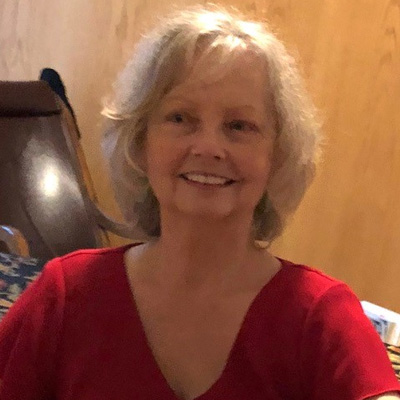Dianne Gavin grew up in the Milwaukee suburb of Greenfield, married the boy next door, and raised her children in Wisconsin. A secretary and stenographer by trade, she also worked for many years for the Department of Defense at the Great Lakes Naval Base in North Chicago.
Dianne was no stranger to glaucoma, as her mother had the disease. But unlike her mother, when Dianne was diagnosed with glaucoma herself, she found she couldn’t take the prescribed eye drops due to allergies. Even so, her sight remained relatively stable for decades.
During this time, Dianne decided to volunteer at a local radio station, getting up at 5 o’clock in the morning to read to people who had difficulty reading printed material. “It was a wonderful way to volunteer. It just made me feel better that I was helping.”
In 2023, Dianne’s vision began to decline significantly. At this point, she is legally blind, with about 10% of her vision remaining.
One of the hardest things Dianne faces is something common to many who experience sight loss later in life—she finds it difficult to ask for help. “I'm used to doing things myself. I had no problem asking for help when I needed it for my mother. But I have a problem asking for help when I need things for myself. It's a huge burden to place on somebody else,” Dianne reflects.
That’s where Hadley came in. From her very first call, Dianne found the help she needed. “In the very beginning, I was just asking, ‘What should I do? How do I do it?’ And as soon as I got to Hadley, I heard, ‘We have a workshop on that,’ or, ‘We have a resource exactly for that.’ It was just so wonderful!”
While reviewing a workshop on adjusting emotionally to vision loss, Dianne commented, “I feel like I have found a gold mine! Person after person at Hadley is so great and helpful. I'm trying to count my blessings, and one of those blessings is Hadley!”
More recently, Dianne joined Hadley’s Adjusting & Coping Together group, where a small group connects weekly for eight sessions to talk through some of the emotions that are typical when adjusting to vision loss.
“When you can relate to somebody, then you don't feel like you're alone in doing it. And that really is very comforting. Being able to encourage someone else facing similar circumstances has a way of reminding you and encouraging you, too.”
One part of Dianne’s life that has always brought her joy and fulfillment is yarn work. However, she worried that she might have to give it up as her vision diminished.
“During Christmas time, I would crochet and knit—I’ve done that for 30 years. Now I can't see to follow the pattern or to do the work,” Dianne said. But she found another way to approach this favorite activity.
“I bought this really thick, bulky yarn so I could feel it as I worked. That was ideal. I was able to crochet some headbands for Christmas by using my sense of touch. The satisfaction of completing something you set out to do is phenomenal.”
Dianne shared this insight with others in her group. “I think we have to acknowledge that yes, our sight is diminishing,” she said, “but our other senses may become more available. I didn't think of the sense of touch coming to life until I found myself actually using it more. It became just an alternative way to accomplish something that I love to do.”
